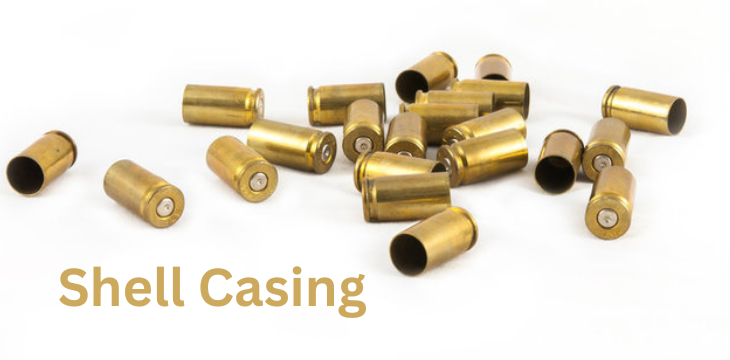Table OF Contents
- 1 1. Introduction
- 2 2. Understanding Shell Casing
- 3 3. Importance of Quality Shell Casing
- 4 4. Types of Firearms Utilizing Shell Casing
- 5 5. Environmental Impact and Sustainability
- 6 6. FAQs (Frequently Asked Questions)
- 6.1 What are the main components of a shell casing?
- 6.2 Are shell casings reusable?
- 6.3 Do different firearms require specific types of shell casings?
- 6.4 How do I dispose of spent shell casings responsibly?
- 6.5 Can damaged shell casings affect firearm performance?
- 6.6 Are there any safety precautions I should take when handling shell casings?
- 7 7. Conclusion
1. Introduction
In the world of firearms, every component plays a crucial role, and shell casing are no exception. These small but vital parts are integral to the firing mechanism, contributing significantly to the performance and safety of firearms. In this comprehensive guide, we delve deep into the realm of shell casings, exploring their types, functions, and importance in firearms operation.
2. Understanding Shell Casing
Shell casing often referred to simply as “casings,” are the metallic containers that hold the primer, propellant, and projectile in a cartridge. They come in various sizes and materials, each designed for specific firearms and purposes.
Types of Shell Casing
Shell casing can be categorized based on several factors, including caliber, material, and design. Common types include brass, steel, and aluminum casings, each offering unique advantages and characteristics.
Functions of Shell Casing
Shell casing serve multiple functions within the firing process. Apart from containing and securing the components of a cartridge, they also facilitate extraction, ejection, and reloading, ensuring smooth and efficient firearm operation.
3. Importance of Quality Shell Casing
The quality of shell casing directly impacts firearm performance and safety. Inferior or damaged casings can lead to malfunctions, misfires, and even catastrophic failures, posing significant risks to the shooter and bystanders.
Quality Assurance Measures
Manufacturers employ stringent quality control measures to ensure that shell casings meet precise specifications and standards. From material selection to production processes, every step is carefully monitored to guarantee reliability and consistency.
Benefits of Quality Shell Casings
Investing in high-quality shell casing offers several benefits, including improved accuracy, reliability, and durability. Whether for recreational shooting or professional use, premium casings enhance overall firearm performance and user experience.
4. Types of Firearms Utilizing Shell Casing
Shell casings are utilized in various types of firearms, ranging from handguns to rifles and shotguns. Each firearm category has specific requirements regarding casing size, material, and design, tailored to optimize performance and functionality.
Handguns
Handguns, including pistols and revolvers, predominantly use brass or nickel-plated brass casings. These casings are reloadable, making them cost-effective and environmentally friendly options for handgun enthusiasts.
Rifles
Rifles employ a wide range of shell casing depending on caliber and intended use. Brass casings are the most common choice for rifle cartridges, offering excellent performance and reloadability.
Shotguns
Shotguns utilize specialized shell casings, commonly known as shotgun shells or shotshells. These casings are typically made of plastic or paper and contain multiple projectiles, such as shot or slugs, for various shooting applications.
5. Environmental Impact and Sustainability
The disposal of spent shell casings raises environmental concerns due to the materials involved, particularly non-biodegradable options like steel and aluminum. However, efforts are underway to promote recycling and responsible disposal practices within the firearms community.
6. FAQs (Frequently Asked Questions)
What are the main components of a shell casing?
A shell casing comprises the primer, propellant, and projectile, housed within a metallic container.
Are shell casings reusable?
Yes, many shell casings, especially those made of brass, can be reloaded multiple times after firing, making them a cost-effective option for avid shooters.
Do different firearms require specific types of shell casings?
Yes, firearms are designed to accommodate specific types and sizes of shell casings, ensuring proper function and safety.
How do I dispose of spent shell casings responsibly?
Spent shell casings should be collected and disposed of in accordance with local regulations. Recycling options may also be available in some areas.
Can damaged shell casings affect firearm performance?
Yes, damaged or deformed shell casings can lead to malfunctions, misfires, and potential hazards, highlighting the importance of using quality casings.
Are there any safety precautions I should take when handling shell casings?
Yes, handling shell casings requires caution, especially during reloading procedures. Always wear appropriate eye and ear protection and follow safe handling practices to minimize risks.
7. Conclusion
Shell casing are integral components of firearms, playing a crucial role in their operation and performance. Understanding the types, functions, and importance of shell casings is essential for firearm enthusiasts and professionals alike. By prioritizing quality and responsible practices, shooters can maximize safety, efficiency, and enjoyment in their firearms activities.

